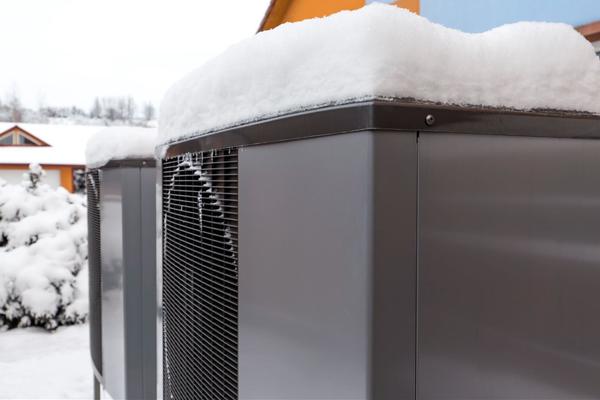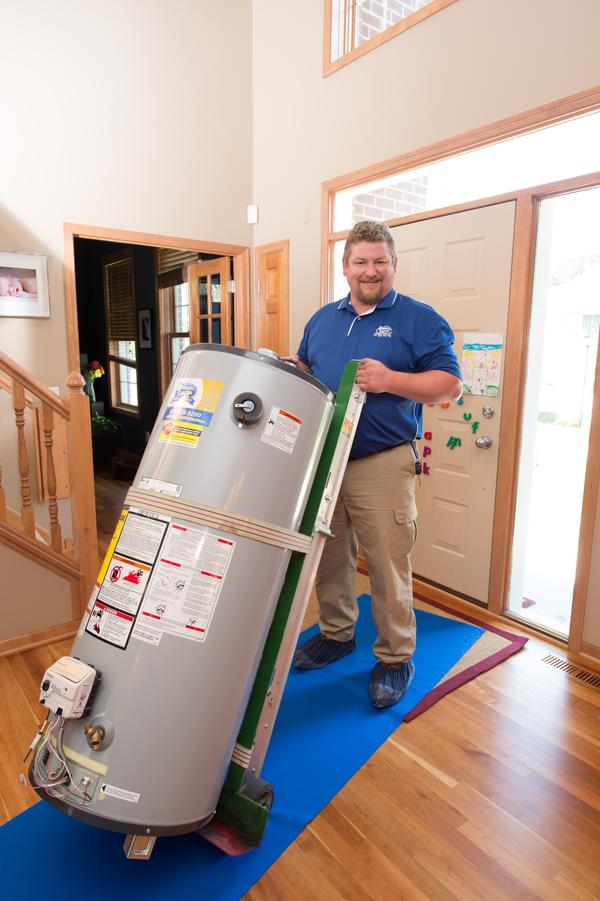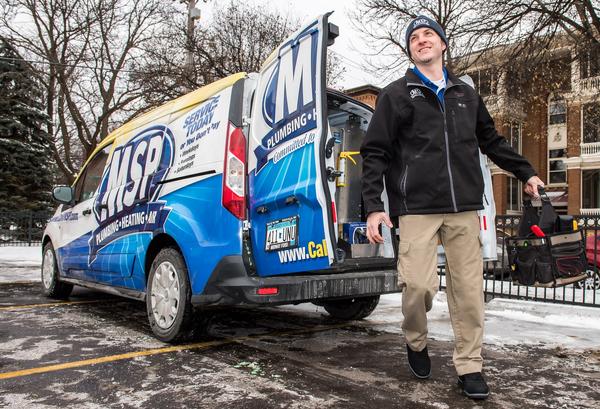Will a Heat Pump Work in Cold Weather?
Heat pumps are great resources for heating and cooling your home while cutting energy costs. If you've never owned this system before, you might wonder, will a heat pump work in cold weather? The answer is yes, provided the installation is done correctly. In some cases, you might need to pair it with a backup heat source. In this article, we'll review the following:
By the end, you'll have all the information you need to decide if heat pumps are the right choice for your home!
Interested in an expert heat pump installation in the Twin Cities?
Looking for expert heating services? MSP Plumbing Heating Air is here to help. For over 100 years, we've performed heat pump installations in the Twin Cities and surrounding areas. We also provide flexible financing options for every budget. Schedule a service visit by calling us at (651) 228-9200 today!
How Heat Pumps Work
Heat pumps are heating and cooling devices that are installed outside your home. Due to the name, many people mistakenly assume that heat pumps generate heat. In reality, they transfer heat between the outdoors and your home. They can be divided into two types:
- Air-source heat pumps
- Ground-source heat pumps
The most common type, air-source heat pumps, relies on a transfer of air. During cold months, they move hot air from outside to inside, which warms the home. Then, during warm months, they move hot air from inside to outside to heat the home.
On the other hand, ground-source heat pumps transfer heat between your home and the outside ground. Compared to air-source varieties, ground-source heat pumps tend to be more energy-efficient. Unlike the air, the temperature of the ground remains consistent throughout the year. However, they're also more costly to install.
Whether you get an air-source or ground-source heat pump, you can expect a high energy efficiency that reduces long-term costs. A standard heat pump offers 300% energy efficiency, while extremely high-quality models reach 600%.
How Heat Pumps Can Work in Cold Weather

Heat pumps can also work in cold climates.
Now that you know what heat pumps are, you might wonder: how exactly do they work in cold weather? To better understand this, let's break heat pumps down into the following parts:
- Outdoor and indoor unit
- Refrigerant coolant
- Compressor
- Expansion and reversing valve
A standard heat pump has an outdoor and indoor unit connected by an expansion valve. When it's in heating mode, the pump takes heat from the outdoor air, then transfers it to the refrigerant coolant. Next, the compressor pressurizes the refrigerant, increasing the air's temperature before spreading it through your home. When the heat pump is in cooling mode, the reverse occurs — the pump absorbs heat from inside, and the reversing valve expels this hot air out of your home.
Why You May Need a Backup Heat Source

Adding a furnace to a heat pump is an energy-efficient solution.
Heat pumps can work in all types of weather, including cold weather. However, when it's extremely cold out, the pump may struggle to extract heat from the air outside. If you live in an area where the temperature drops below 32ºF, getting a backup heat source is advisable to ensure you remain warm during winter. There are two primary sources you can use:
- Electric resistance coil heaters
- Gas furnaces (dual fuel system)
Electric resistance coil heaters are the cheaper — and more commonly used — backup source. The coils installed directly into your ductwork convert electrical energy into heat that spreads through the home. While they're relatively inexpensive, they have a fairly low energy efficiency compared to heat pumps. In other words, the more you rely on the coils, the higher your energy bill will be.
The other option is to get a dual-fuel system consisting of a heat pump and a gas furnace. This comes with a higher installation cost; however, you can expect higher energy efficiency. Electric coils demand about three times more source energy to produce heat than gas furnaces do. Ultimately, gas furnaces are better long-term options, and you can expect energy savings to cover the extra installation cost after a few years.
Are Heat Pumps a Good Idea in Minnesota?
Heat pumps are a great resource if you're looking for a reliable, cost-effective way to stay warm during Minnesota winters. Not only can they provide a steady flow of hot air during colder months, but they can also keep you cool when summer comes around. However, since temperatures can drop to as low as 12°F, it's recommended to pair your heat pump with a backup source. And, for the best results, you should always work with a reputable team, like MSP Plumbing Heating Air.
Our team has over 100 years of experience connecting homeowners with high-quality electrical appliances that suit their needs. After helping you select a heat pump, you can trust us to handle the installation in a quick, safe manner. We'll also take care of any repairs you may need. When you work with us, you can rest assured you're receiving a dependable, quality heat pump for your Minnesota home.
Schedule With Our Heating Experts at MSP!

Are you looking for heating professionals trusted by your neighbors? Get a thorough heat pump installation or furnace installation backed up with a solid labor warranty with us. You can count on MSP Plumbing Heating Air to provide 5-star service. Our honest, upfront prices and our 100% satisfaction rate make us stand out. Call us at (651) 228-9200 to schedule a diagnostic visit.
